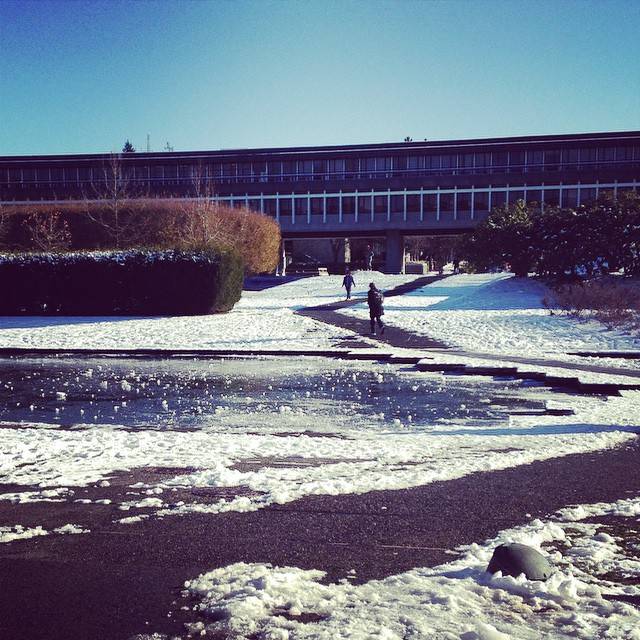沟通之前:希望您能花,三到五分钟的时间,观看我们的视频,对我们的能力,有一个初步判断。

萨塞克斯大学毕业照展示
英国主要萨塞克斯大学警告工党削减学费第三的财政风险?一年6000美元(9044美元)。 该党正在决定是否继续进行旨在争取中产阶级的昂贵选举前承诺,为英国《金融时报》撰写海伦·沃雷尔和伊丽莎白·里格比。 而工党领袖埃德·米利班德则认为,通过降低萨塞克斯大学教育成本,陈影子获得了重大的政治收益。 Cel-ED球一直在努力找到一种方法来满足成本,可能是?20亿到?25亿,不给萨塞克斯大学带来额外负担。 几位萨塞克斯大学副校长?在任何情况下,谁都预期在下一轮支出中大幅削减政府资金?已经表达了他们的担忧。 埃克塞特萨塞克斯大学副校长史蒂夫·史密斯爵士最近在一次行业领袖会议上发表讲话,表示他担心工党会宣布获得搒霍特任期的政治利益。 没有适当的经济支撑。 《金融时报》网站全文报道 Euphoria over the awarding of a Nobel prize in medicine to a Japanese professor has been dampened by a new scandal that has rocked the academic world – false claims by another Japanese researcher that he had conducted groundbreaking stem cell trials.The 2012 Nobel prize in physiology or medicine was awarded jointly to Britain’s Sir John B Gurdon and Japan’s Professor Shinya Yamanaka “for the discovery that mature cells can be reprogrammed to become pluripotent”.Yamanaka (50), of Kyoto University in Japan and the Gladstone Institutes in San Francisco in the United States, earned the prize for his work creating induced pluripotent stem cells. iPS cells are genetically engineered to allow them to be transformed into any type of cell in the body, and enable scientists to explore diseases as never before or regenerate tissue.But last week Yamanaka’s extraordinary scientific achievements were overshadowed by a controversy involving Professor Hisashi Moriguchi of the University of Tokyo Hospital, who claimed that he and other researchers transplanted artificial cardiac muscle cells developed from iPS cells in trials involving six cardiac patients in the United States.Moriguchi also claimed to be affiliated to Harvard University, but it and other sources have since said he was a visiting researcher at Massachusetts General Hospital for a month in 1999 and subsequently there had been no connection.“Research has been conducted after going through due procedures such as consultations with a university ethics committee,” Moriguchi was quoted as saying by Japan’s Kyodo News Service.“I have been told my method of creating iPS cells is different from the ones used by Professor Yamanaka but I have been doing my way and no problems have been caused after transplants.” The story made headlines around the world.But last week Harvard University released a statement noting that it and the Massachusetts General Hospital had never authorised any of his clinical studies. On Friday the University of Tokyo announced that it had fired Moriguchi, according to The Yomiuri Shimbun. The university hospital had conducted an investigation involving five faculty members, and Moriguchi had admitted during a hearing that he had made false claims about five of the six transplants, the newspaper reported.The revelation of Moriguchi’s false claims has turned the spotlight on challenges facing Japanese research including issues that surround academic breakthroughs, especially iPS cell research – an area where Japanese technology is eager to take the global lead. Professor Shigetake Maruyama, head of the law department at Kanto Gakuin University, said the scandal was an opportunity to delve into what he described as a rather “loose” reviewing system in most higher education institutions.“Prior to publication, university research papers are expected to be examined closely by a panel of experts. But often this is not followed closely. Publishing of research is also based on guidelines that have been developed by each university which makes the system widely diverse,” he explained.Moriguchi worked as a research associate under a Cabinet Office funding programme supporting Japan’s next generation of top researchers. Seiji Maehara, state minister for science and technology policy, reportedly told a press conference on Friday that the government would investigate the conduct of 360 research projects administered by the programme.The Mainichi newspaper commented in an editorial last week that the Moriguchi controversy had dealt a devastating blow to the reputation of Japanese medical research and had also highlighted the lack of strict monitoring of academic publications.“Before reporting on Moriguchi’s iPS success, the stakeholders should have made independent checks,” noted the editorial, pointing a finger at the researcher’s supervisor, who put his signature to the findings, and Japanese publications that announced the breakthrough. Some experts said the controversy was an opportunity to reassess academic research against a backdrop of fierce competition for the funding needed to support young researchers’ ambitions to conduct long-term studies. Indeed, Nobel prize winner Yamanaka had complained of struggling to continue his studies in Japan’s research system.Maruyama said that subsidies for research, especially from the government, were often steeped in regulations that are implemented by bureaucrats who are not experts in the field. The focus is therefore on the applications’ connections to well-known academics or institutions.Academics pointed out that sound ethnics in individuals was a precondition for strong research, and the Mainichi called for ethics to be deepened in Japanese education.声明:本站所有下载链接均为网络公开资源进行收集,如果不小心侵犯的你的权益,可以联系删除。
